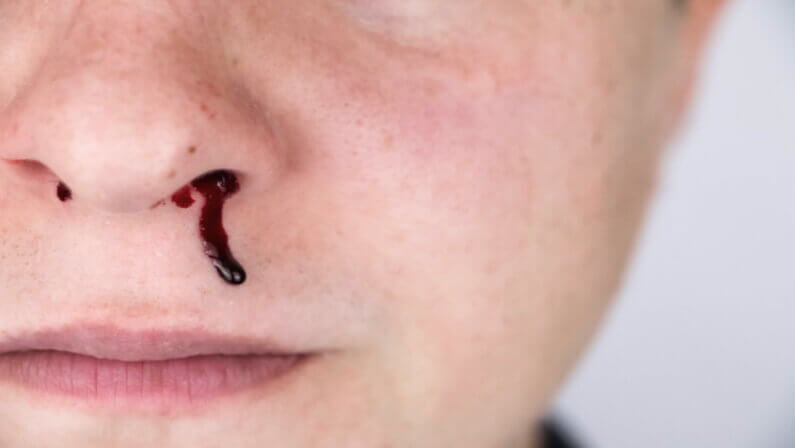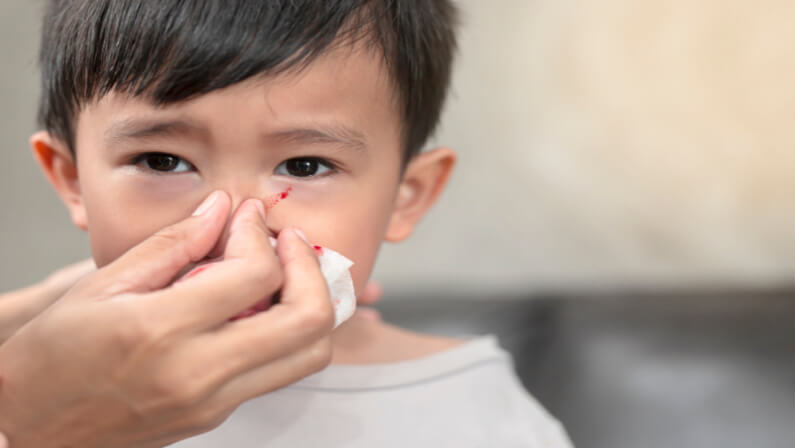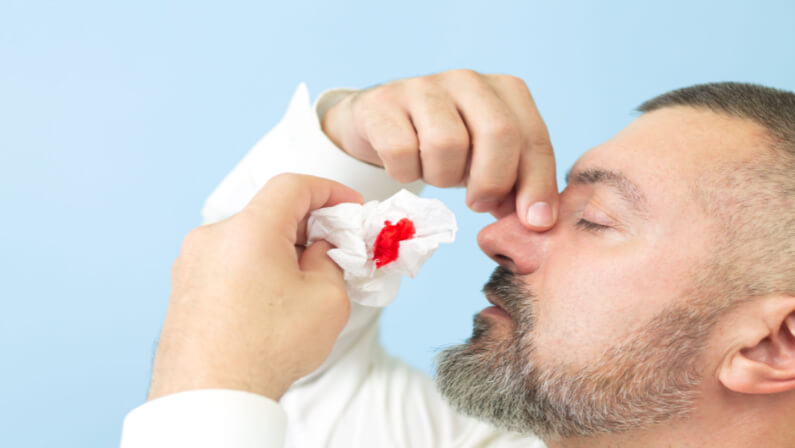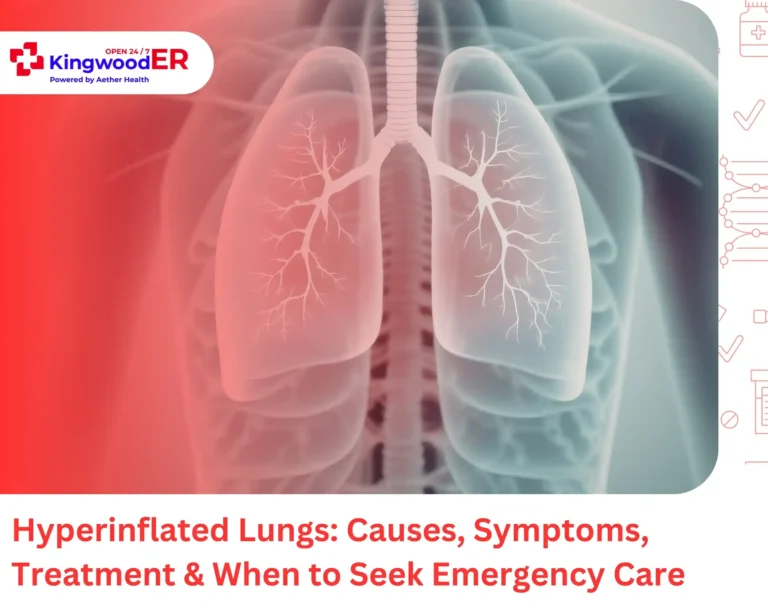Nose bleeds happen when the thin walls of the vessels inside your nose break due to trauma or dryness, allowing blood to escape. Although often harmless and short-lived, it is important to take steps to reduce the risk of further bleeding.
What is a nosebleed?
Nosebleeding is a common condition in which the blood vessels inside your nose break and bleed. It is also referred to as epistaxis. Nosebleeds can occur anywhere in the nose but are most commonly seen at its front part (anterior), where it meets your face.
Moreover, nosebleeds can be divided into two types, anterior (or local) nosebleeds, where the blood originates from the front part of your nose, and posterior (or general) nosebleeds, where bleeding is originating higher up in your nasal cavity.
Are nosebleeds serious?
Although nosebleeds can seem scary, they are usually harmless and short-lived. Most nosebleeds can be treated at home by applying pressure to your nostrils or using an over-the-counter nasal spray. However, if the bleeding persists for more than 20 minutes or is accompanied by other symptoms such as headache, facial pain, vision problems, or dizziness, it is important to seek medical attention.
Who gets nosebleeds?

Anyone can get nosebleeds, but certain factors increase the risk, such as dry air, high altitudes, allergies, infection, colds and flu, certain medications (blood thinners), and even repeated sneezing or picking your nose. In addition to these common causes, some people may be more prone to nosebleeds due to structural problems in their noses or blood clotting disorders.
Nosebleed Causes
There are several factors that can contribute to nosebleeds, such as:
- Dry air or high altitudes.
- Allergies and infections.
- Cold and flu viruses.
- Certain medications (blood thinners).
- Repeated sneezing or picking your nose.
- Structural problems in the nose can also lead to nosebleeds.
These are just some of the many causes of nosebleeds.
Nose Bleed Symptoms
Nosebleeding is commonly the only symptom experienced. However, some people may experience other symptoms such as headache, facial pain, and vision problems. In very rare cases, nosebleeds can be a sign of a more serious underlying condition, such as high blood pressure or a bleeding disorder.
How to Stop a Nosebleed

In most cases, you can treat your nosebleed at home by applying firm pressure to your nostrils with a clean cloth. If this doesn’t work, using an over-the-counter nasal spray may help stop the bleeding.
However, if it doesn’t work, here are some steps you can do:
- Sit up and lean forward slightly so that you don’t swallow any blood.
- 2. Pinch the soft parts of your nose with your thumb and index finger for 10 minutes to stop the bleeding. Avoid pinching too hard.
- Place an ice pack on the bridge of your nose or hold a cold cloth on it to reduce the swelling.
- Apply petroleum jelly or a saline nasal spray to keep your nose moist and prevent further bleeding.
- If the bleeding doesn’t stop after 20 minutes, seek medical attention immediately.
How are nosebleeds diagnosed?
Nosebleeds are diagnosed when a doctor visually inspects the nose and checks for any signs of bleeding. They may also recommend other tests such as a CT scan or MRI to look for any structural abnormalities in your nose or sinuses.
How are nosebleeds treated?
Most nosebleeds can be treated at home by applying pressure to the nostrils, and these steps:
- Nasal packing. Nasal packing involves inserting gauze or a special balloon into the nose to stop bleeding.
- Cauterization. Cautery is a procedure that uses heat energy to seal off ruptured blood vessels and stop bleeding.
- Medication adjustments/new prescriptions. If the nosebleed is due to certain medications, such as blood thinners, your doctor may adjust the medication or prescribe new ones.
- Foreign body removal. In some cases, a foreign object (such as a tumor or polyp) may be causing the nosebleed. If this is the case, your doctor will remove it surgically.
- Surgical repair of a broken nose. In severe cases, doctors may perform surgery to control the bleeding and repair any structural problems in the nose.
- Ligation. Ligation is a procedure that uses a tiny knot to tie off the bleeding blood vessels.
- Nasal cautery. Nasal cautery involves using a chemical agent or an electric current to burn and seal off ruptured blood vessels.
Tips for recovering from a nosebleed

Once you have stopped the bleeding, it’s important to take extra care of your nose.
Here are some tips for recovering from a nosebleed:
- Avoid blowing or rubbing your nose for at least 24 hours after the bleeding has stopped.
- Use a humidifier in your house or office to keep the air moist and prevent further drying of your nasal passages.
- Apply a thin layer of petroleum jelly inside your nose to keep it moist.
- Try using saline nasal sprays or gels if you have ongoing dryness in the nose.
- Avoid picking your nose, as this can lead to further damage and bleeding.
- If your doctor has given you any medication, be sure to take it as directed.
- If your nosebleed persists or keeps recurring, contact your doctor. They may recommend additional treatments to help control further bleeding.
When should I go to the emergency room if I have a nosebleed?
Yes, it is important to seek immediate medical attention if you have a nosebleed that doesn’t stop after 20 minutes, is accompanied by dizziness or fainting, or shows signs of infection. You should also seek emergency care if the bleeding is extremely heavy and you are unable to keep up with it. In such cases, your doctor may need to perform minor surgery to stop the bleeding.
At Aether Health – Kingwood ER, we are here to help you with any nosebleed emergency. So, if you experience a nosebleed that doesn’t stop after 20 minutes, don’t hesitate to visit us for prompt medical care. Our team of experts is available 24/7 to provide quality treatment and restore your peace of mind. Reach out to us today!
How to prevent nose bleeds?

There can be ways to reduce the risk of having a nosebleed.
Here are some tips:
- Avoid picking your nose or rubbing it too roughly.
- Keep your hands clean and do not touch the inside of your nose.
- Use a saline nasal spray or gel to keep the inside of your nose moist.
- Avoid smoking and consuming alcohol, as they can irritate your nasal tissues.
- Use a humidifier in your home or office to keep the air moist and reduce the risk of nosebleeds due to dryness.
- Avoid cold weather, as extreme temperatures may lead to nasal dryness and bleeding.
- If you take blood-thinning medications, talk to your doctor about switching to an alternative.
- If you have allergies, talk to your doctor about medications or other treatments to reduce the risk of nosebleeds.
- Avoid using nasal sprays or drops that contain steroids, as these can also increase the risk of nosebleeds.
Don’t Ignore Your Nosebleeds
Nosebleeds are usually harmless and can be treated at home with pressure and ice. However, if the bleeding persists or is accompanied by symptoms such as dizziness and fainting, it’s best to seek medical attention right away. At Aether Health – Kingwood ER, our team of experts is available 24/7 to provide quality treatment and restore your peace of mind. Reach out to us today!




